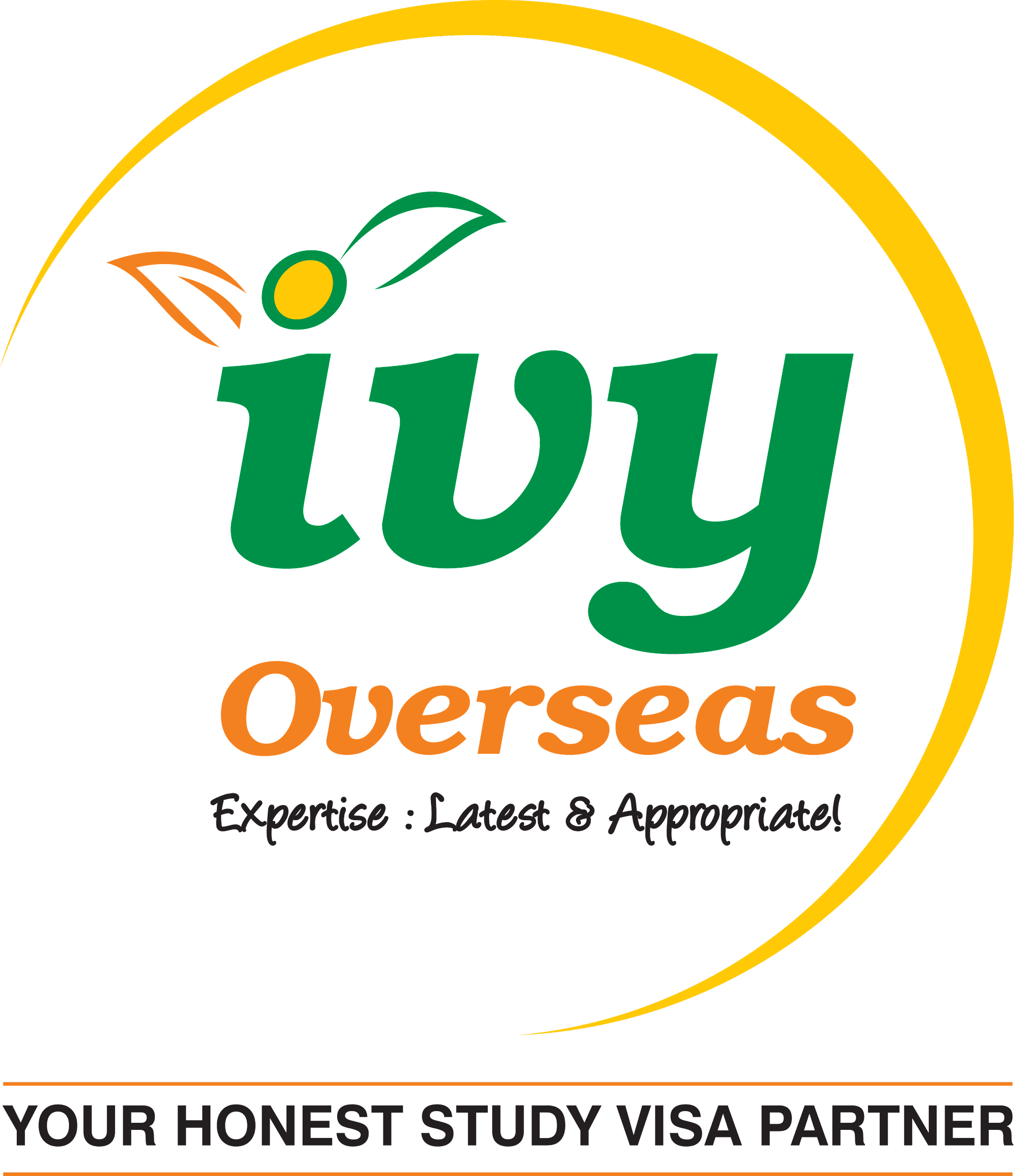Study Bachelor’s Degree in Canada
Embarking on a bachelors degree Canada journey means choosing world‑class education, vibrant multicultural campuses, and clear pathways to work and residency. Canada consistently ranks among the world’s most educated nations, with over 56% of adults holding at least a bachelors degree. Its universities combine academic excellence, multicultural campuses, and postgraduation work pathways—making it a top destination for global undergraduates.
Key Benefits
Canada offers a bachelors degree in Canada that combines worldclass education—where 24 Canadian universities feature in the QS World University Rankings with affordable tuition (CAD 15,000–45,000 per year, often lower than U.S. or U.K. alternatives), generous post‑study work opportunities (up to 3 years on a PGWP).
Admission Requirements
To secure your bachelors degree in Canada, youll need a secondary‑school diploma with minimum Language Proficiency: 60% , proof of English Language (IELTS/PTE/TOEFL/Duolingo), and supporting documentsSOP,LOR's, a resume, and a portfolio for few programs.
Career Prospects
Graduates enter highdemand sectors—tech, finance, healthcarewith starting salaries averaging CAD 50000–65000 per year. Canadian degree holders enjoy a 90% employment rate within six months of graduation. PGWP holders can qualify for Canadian Experience Class (CEC) permanent residency after one year of work.
Popular Bachelors Courses in Canada
When exploring Popular Bachelors Courses in Canada, international students gravitate toward programs that blend academic rigor with strong career outcomes. Here are six in‑demand options:
As one of the most sought‑after Popular Bachelors Courses in Canada, computer science programs at U of Toronto, University of Waterloo, and UBC offer handson coding labs, AI research opportunities, and coop streamspreparing you for roles in software development, data analytics, and cybersecurity.
The Bachelor of Business Administration is a top choice among Popular Bachelors Courses in Canada, with Ivey Business School (Western University), Queens University, and McGill University emphasizing casebased learning, global exchange, and leadership practicums for careers in finance, marketing, and consulting.
Ranked among Popular Bachelors Courses in Canada for its blend of theory and practice, engineering at McGill, University of Alberta, and University of Toronto spans civil, mechanical, electrical, and biomedical streamscomplete with industry‑sponsored capstones and coop terms.
Nursing is a rapidly growing Popular Bachelors Course in Canada, offered at institutions like University of British Columbia and McMaster University. These programs provide clinical placements across top hospitals and focus on community health, gerontology, and advanced practice nursing.
As a Popular Bachelors Course in Canada, psychology degrees at University of Calgary, Dalhousie University, and Simon Fraser University combine research‑led lectures with lab practicums in cognitive, clinical, and developmental psychologyideal for careers in counseling, human resources, or graduate studies.
Environmental science ranks high among Popular Bachelors Courses in Canada for students passionate about sustainability. Programs at University of Guelph, York University, and University of Victoria focus on fieldwork, GIS mapping, and policy analysisopening doors to roles in conservation, renewable energy, and environmental consulting.
Eligibility of Bachelors in Canada
Eligibility of Bachelors in Canada depends on several factors including academic qualifications, language proficiency, and specific program requirements. Additionally, some universities may require specific subject prerequisites or portfolio submissions for programs like engineering, design, or business. Understanding the eligibility of Bachelors in Canada helps students prepare effectively for the application process and improve their chances of acceptance.
The Requirement of Bachelors in Canada spans documentation, standardized tests, and procedural steps to complete your application successfully:
Eligibility of Bachelors in Canada
- Academic Qualifications : CBSE/ISC/State Boards: Top Canadian universities typically require a minimum of 75–85% in core subjects.
- Language Proficiency: IELTS:6.5/ 6.0 or TOEFL: 90 or PTE: 65 or Duolingo: 115
- Financial Proof: Demonstrate CAD 20,000–30,000 per year via bank statements.
Requirement of Bachelors in Canada
- Official Transcripts & Diploma | Language Test Score | Statement of Purpose (SOP) | Letters of Recommendation | Curriculum Vitae (CV)/Resume | Portfolio (if applicable) | Application Form & Fees | Proof of Funds | Study Permit Documents
Top universities in Canada for bachelors | Best colleges in Canada for bachelor's degree
There are many top universities in Canada for bachelors offering world-class education and global recognition. Students prefer the top universities in Canada for bachelors due to their academic excellence, modern campuses, and diverse programs. Whether it’s engineering, business, or health sciences, the top universities in Canada for bachelors provide high-quality teaching and strong career outcomes. When researching the Top universities in canada for bachelors or Best colleges in canada for bachelor's degree, its essential to consider factors like academic reputation, handson learning, and graduate outcomes. Below are five Top universities in canada for bachelors and four lBest colleges in canada for bachelor's degree that consistently deliver outstanding undergraduate experiences:
Cost of Studying Bachelors in Canada
The cost of studying bachelors in Canada typically ranges between CAD 15,000 to CAD 30,000 per year, depending on the university, program, and location. Courses like engineering and health sciences may cost more, while arts and humanities are usually on the lower end. Apart from tuition, the cost of studying bachelors in Canada also includes living expenses, which average around CAD 10,000 to CAD 15,000 annually. Despite this, many international students find the cost of studying bachelors in Canada affordable, especially with access to scholarships, on-campus jobs, and post-study work opportunities.
Cost of Studying Bachelors in Canada at Universities:
Cost of Studying Bachelors in Canada, CAD 20,000 to CAD 45,000 Tuition fee depending on university and course. Below are the few universities with average annual tuition fee.
- University of Toronto: CAD 45,00060,000
- University of British Columbia: CAD 40,000–55,000
- University of Waterloo: CAD 35,000-50,000
- McGill University: CAD 30,000–45,000
- University of Alberta: CAD 30,000–40,000
- University of Montreal: CAD 25,00035,000
- University of Victoria: CAD 25,000–35,000
- Dalhousie University: CAD 20,000–30,000
Living Expenses for Bachelors in Canada
- Toronto & Vancouver: CAD 18,000–22,000 (higher rent & transit)
- Montreal & Quebec City: CAD 12,00016,000 (more affordable)
- Calgary & Edmonton: CAD 14,00018,000
Cost of Studying Bachelors in Canada at Colleges:
Cost of Studying Bachelors in Canada, CAD 18,000 to CAD 25,000 Tuition fee depending on college and course. Below are the few universities with average annual tuition fee.
- Sault College: CAD 19,50020,000
- St. Clair College: CAD 23,900–25,000
- Fanshawe College: CAD 18,10020,000
- Sheridan College: CAD 20,000 - 21,000
- Conestoga College: CAD 19,000 - 20,000
- George Brown College: CAD 21,700 22,000
- Humber College: CAD 21,500 – 22,000
- Seneca College: CAD 20,200 21,000
- Georgian College: CAD 20,360 22,450
Living Expenses for Bachelors in Canada
- Toronto & Vancouver: CAD 16,00020,000 (higher rent & transit)
- Montreal & Quebec City: CAD 10,000–14,000 (more affordable)
- Calgary & Edmonton: CAD 12,000–16,000
Scholarships to Study Bachelors in Canada
There are several scholarships to study bachelors in Canada offered by universities, the government, and private bodies. These scholarships to study bachelors in Canada are based on academic merit, leadership, or financial need. Top options include the Lester B. Pearson Scholarship (Toronto) and UBC’s International Leader of Tomorrow Award. Many universities offer automatic entrance awards, making scholarships to study bachelors in Canada more accessible for international students.
Canadian universities offer more substantial entrance awards as part of their scholarships to study bachelors in Canada programs:
Award Range: CAD 10,00040,000 per year, renewable for up to four years.
Selection Factors: Academic excellence (top 10–15% of applicant pool), leadership roles, volunteer service, and extracurricular achievements.
How to Apply: Many institutions (e.g., UBCs Centennial Scholars, Queens International Admission Scholarships) automatically assess scholarship eligibility upon application, while others (like McGill’s Major Entrance Scholarship) require a separate essay and reference letters.
When exploring scholarships to study bachelors in Canada at colleges, youll find merit‑based awards tailored to high‑achieving applicants:
Award Range: CAD 2,0005,000 per year, often renewable for a second year.
Eligibility Criteria: GPA≥75%, demonstrated leadership, and community involvement.
Application Process: Most colleges automatically review candidates upon admission; a few require a short scholarship essay or supplementary form.
Required Documents for Bachelors in Canada
The required documents for bachelors in Canada include academic transcripts from class 10 and 12, a valid passport, English proficiency test scores like IELTS or TOEFL, and a statement of purpose. Some universities may also ask for letters of recommendation, a resume, or portfolio for specific programs. Submitting all the required documents for bachelors in Canada accurately and on time is key for a successful application.
| Document Name | Purpose | Details |
|---|---|---|
| Official Transcripts & Diploma | Admission | Attested 10+2 academic records |
| Language Proficiency Scores | Admission & Visa | IELTS/PTE/TOEFL/Duolingo |
| Statement of Purpose (SOP) | Admission & Visa | 500–800 word essay outlining goals, motivation, and future plans |
| Letters of Recommendation | Admission | Usually two academic/professional references attesting to your ability |
| Curriculum Vitae (CV) / Resume | Admission | Details on academics, internships, extracurriculars, and achievements |
| Portfolio | Admission (if applicable) | Required for design, architecture, and creative programs (8–12 samples) |
| Completed Application Form | Admission | Submitted via university portal or provincial application system |
| Application Fee Receipt | Admission | Typically CAD 75150, varies by institution |
| Letter of Acceptance | Visa | Official offer from a Designated Learning Institution (DLI) in Canada |
| Proof of Funds | Visa | Bank statement/sponsorship letter showing CAD 20,000–30,000+ annually |
| Valid Passport | Visa | Must be valid through your entire study period |
| Passport-Size Photos | Visa | 2 photos meeting Canadian visa photo specs (35mm x 45mm, white background) |
| Medical Examination | Visa (if required) | Performed by IRCC-approved panel physician if you're from a designated country |
Admission Process for Bachelors in Canada
The admission process for bachelors in Canada starts with selecting a university and program, followed by checking the eligibility criteria. Students then need to submit an online application along with academic transcripts, English test scores, and other required documents. The admission process for bachelors in Canada also includes writing a statement of purpose and, in some cases, providing letters of recommendation. Once accepted, students receive an offer letter, after which they can apply for a study permit. Following the correct admission process for bachelors in Canada increases the chances of getting into a top university.
Begin by comparing programs, tuition, and campus location at Designated Learning Institutions (DLIs). Use bachelors in Canada and related search terms to identify the best fit for your goals.
Confirm you meet academic thresholds (60%+ average), language criteria (IELTS/PTE/TOEFL), and financial proof (CAD 20,000+ per year). Gathering this information early ensures youre ready when applications open.
Assemble official transcripts, language test scores, a compelling Statement of Purpose, two recommendation letters, and your CV. For creative fields, include an 8–12‑piece portfolio.
Apply through university portals or provincial services (e.g., OUAC for Ontario) before fallintake deadlines (DecemberFebruary). Pay the nonrefundable application fees (CAD 75150) to complete each submission.
Decisions typically arrive by AprilJune. Once you receive your conditional or unconditional offer, confirm your spot by paying the seatconfirmation deposit (CAD5001,000).
With your letter of acceptance in hand, apply online for a study permit. Upload your acceptance letter, proof of funds, passport copy, and any required medical exam results. Processing can take 4–12 weeks, so apply promptly.
After permit approval, book flights, arrange housing, and register for orientation. Familiarize yourself with Canadian customs, health insurance, and campus life to hit the ground running.
Part-Time Work Opportunities & PGWP for Bachelors in Canada
There are many part-time work opportunities for bachelors in Canada, helping students manage expenses while gaining valuable experience. International students can work up to 24 hours per week during classes and full-time during breaks. These part-time work opportunities for bachelors in Canada are available both on-campus and off-campus, making it easier for students to balance work and study. After graduation, students are eligible for a Post-Graduation Work Permit (PGWP) after bachelors in Canada, which can be valid for up to three years. The PGWP after bachelors in Canada allows students to stay, work, and gain skilled experience, which is crucial for those planning to apply for permanent residency. With both part-time work opportunities for bachelors in Canada and the PGWP after bachelors in Canada, studying in Canada becomes a long-term career investment.
International students enrolled in full-time bachelor's programs at Designated Learning Institutions (DLIs) are allowed to:
Work up to 24 hours/week off-campus during regular semesters
Work full-time during scheduled breaks(like summer or winter holidays)
CAD $15 – $25/hour Average part-time wages, depending on city and job type.
Popular cities like Toronto, Vancouver, Montreal, Calgary, and Ottawa offer abundant part-time roles with student-friendly shifts and minimum wage protections.
Once you complete your bachelors degree in Canada, you're eligible to apply for the Post-Graduation Work Permit (PGWP) a huge advantage for international students.
Duration: Up to 3 years of open work permit.
Eligibility Criteria: Eligible after completing a program of at least 8 months from a DLI.
After at least one year of full-time skilled work in Canada under PGWP, you may qualify for Permanent Residency (PR) through the Canadian Experience Class (CEC) under the Express Entry system.
Job Opportunities after Bachelors in Canada
There are strong job opportunities after bachelors in Canada for international graduates across various fields like IT, healthcare, engineering, business, and more. Canadian employers value degrees from local universities, making it easier to find employment. Many students use the Post-Graduation Work Permit (PGWP) to gain work experience. These job opportunities after bachelors in Canada not only provide career growth but also support permanent residency pathways. With a growing demand for skilled workers, the job opportunities after bachelors in Canada continue to rise, making it an attractive option for international students. Below is a snapshot of top fields, designations, average salaries, and employers:
Engineering & Technology
- Roles: Software Developer, Data Analyst, Civil Engineer
- Salary: CAD $60,000 $90,000/year
- Top Employers: Shopify, IBM, Bombardier, TELUS
Business & Management
- Roles: Marketing Analyst, HR Coordinator, Financial Associate
- Salary: CAD $50,000 – $75,000/year
- Top Employers: RBC, Deloitte, TD Bank, Manulife
Healthcare & Life Sciences
- Roles: Public Health Officer, Lab Technologist, Research Assistant
- Salary: CAD $55,000 – $80,000/year
- Top Employers: Canada Health Services, Shoppers Drug Mart, Sunnybrook
Design, Arts & Media
- Roles: Graphic Designer, UX/UI Designer, Content Creator
- Salary: CAD $45,000 – $65,000/year
- Top Employers: Ubisoft, CBC, Rogers, Bell Media
Environment & Sustainability
- Roles: Environmental Analyst, Ecologist, Sustainability Consultant
- Salary: CAD $50,000 – $70,000/year
- Top Employers: Environment Canada, WWF, AECOM
IT & Data Science
- Roles: Web Developer, Cybersecurity Analyst, Data Scientist
- Salary: CAD $60,000 $95,000/year
- Top Employers: Google, Amazon, Accenture, CGI
A bachelors degree Canada opens doors to toptier education, global networks, and a vibrant life abroad. With clear planning, timely applications, and proactive scholarship searches, youll transform your undergraduate years into a launchpad for lifelong success. Start todayyour Canadian adventure awaits!
Ready to Begin Your Canadian Journey?
Apply stress-free with expert guidance. Discover the right university for your undergraduate studies in minutes. We offer comprehensive support to ensure your application stands out.



